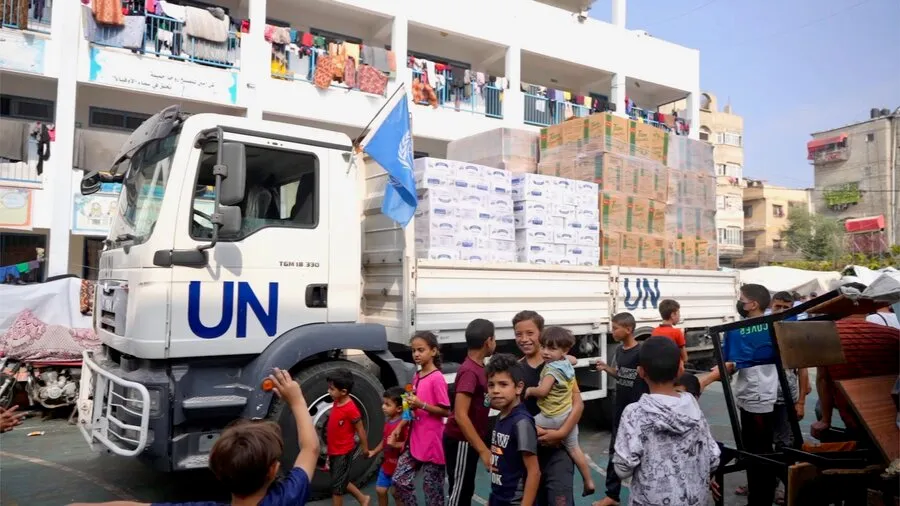U.S. Secretary of State Antony Blinken and Defense Secretary Lloyd Austin sent a warning to Israel’s Defense Minister Yoav Gallant and Minister of Strategic Affairs Ron Dermer, that humanitarian into Gaza was drastically insufficient, but—no rush—they had 30 days to figure out how to allow aid trucks through the checkpoints. A Pentagon readout said that on Oct. 13, Austin raised to Gallant “the dire humanitarian situation in Gaza and stressed that steps must be taken to address it.”
The letter states that if “concrete measures” to improve the situation had to be taken within those 30 days. “Failure to demonstrate a sustained commitment to implementing and maintaining these measures may have implications for U.S. policy under NSM-20 and relevant U.S. law.” At that point, recipients of American weapons must provide “credible and reliable written assurances” that they would respect international law. Of course, a similar letter had been sent in April, according to State Department spokesman Matthew Miller yesterday; though he didn’t go on to explain that in May, Blinken had simply lied to Congress that Israel’s written assurance was credible and reliable, in order to keep the 2,000-pound bombs coming.
The letter claims that the amount of aid entering Gaza last month was “the lowest of any month during the past year.” While Israel implemented a series of provisions to improve the flow of aid into Gaza after promising to do so in the spring, “the amount of aid delivered has [since] dropped by more than 50%.” Israel needs to, according to the Times of Israel account of the letter, increase the supply of humanitarian aid by the start of winter to 350 aid trucks/day; facilitate the aid delivery route through Jordan; and end the “isolation” of northern Gaza. Apparently, the letter urged getting back up to 50 to 100 trucks/day prior to winter. (This is a level of 10-20% in aid going into Gaza prior to Oct. 7, 2023.)
Journalists had a hard time getting an answer as to why a 30-day waiting period was specified (see separate slug), but it hasn’t been lost by more than a few that Vice President Kamala Harris gets to reach out to Arab-American voters as if the administration were taking a stand to defend the Gaza victims, while not having to actually be put to the test until after the election. Notably, Annelle Sheline, who resigned from the State Department earlier this year over the administration’s Israel policy, said: “It’s very convenient that the deadline is after the election.” It’s likely that the letter was written to persuade Muslim and Arab-American voters in swing states like Michigan to side with the Democrats in three weeks.
Sure enough, Harris tweeted from her VP account X: “Civilians must be protected and must have access to food, water, and medicine. International humanitarian law must be respected.”
Such niceties aside, the American Israel Public Affairs Committee (AIPAC) lobby posted on X: “Threatening to cut off American support for Israel as it confronts Iran and its proxies on seven fronts weakens our ally, undermines American interests, and sends a dangerous message to our common enemies about U.S. support for our democratic allies.” And, they add, in their view, Israel has taken steps to address the crisis under difficult conditions.




